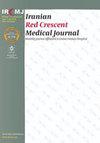癌症干细胞对心脏毒性的影响:分子机制与未来方法
IF 0.4
4区 医学
引用次数: 0
摘要
背景:癌症发病率的上升导致使用化疗药物时发生心毒性并发症的情况增加。癌症干细胞(CSCs)是对癌症治疗有抵抗力的细胞群,它们通过改变信号通路逃避细胞死亡。因此,增加化疗药物的剂量会增加对心脏组织的损害和心脏毒性的后果。 通过改变活性氧(ROS)、炎症和细胞凋亡的数量,研究导致造血干细胞存活的信号通路,以及这些因素在分子水平上对心肌细胞的影响,可以更详细地了解心脏毒性过程是如何发生的。通过增加氧化应激、炎症和细胞凋亡这三个过程,参与心脏毒性过程的重要信号通路中,我们可以提到 Notch、pI3K/AKT、wnt 信号通路和 NF-kB。这种方法可以提出既能消灭 CSCs 又能减少心脏毒性的治疗方法。 结论最后,作为一种假设,可以说影响 CSCs 存活的有效因素可以通过影响 ROS、炎症和细胞凋亡过程来影响心脏毒性。本文章由计算机程序翻译,如有差异,请以英文原文为准。
Effect of Cancer Stem Cell on Cardio-toxicity: Molecular Mechanism and Future Approach
Background: A rise in the cancer rate causes an increase in the occurrence of cardio-toxic complications while using chemotherapy drugs. Cancer stem cells (CSCs) are cell masses resistant to cancer treatment which escape from cell death by changing signaling pathways. Therefore, increasing the dosage of chemotherapy drugs increases the damage to the heart tissue and the consequences of cardio-toxicity. Investigating the signaling pathways responsible for the survival of CSCs through changing the amount of reactive oxygen species (ROS), inflammation, and apoptosis, and the effect of these factors on cardiomyocytes at the molecular level can provide a more detailed view of how the cardiotoxicity process works. Among the important signaling pathways involved in the cardiotoxicity process, through the three processes of increasing oxidative stress, inflammation, and apoptosis, we can mention Notch, pI3K/AKT, wnt signaling pathways, and NF-kB. This approach can suggest therapeutic methods capable of destroying CSCs with less cardiotoxicity effects. Conclusion: Finally, as a hypothesis, it can be said that effective factors on the survival of CSCs can influence the cardio-toxicity by impacting ROS, inflammation, and apoptosis process.
求助全文
通过发布文献求助,成功后即可免费获取论文全文。
去求助
来源期刊

Iranian Red Crescent Medical Journal
医学-医学:内科
自引率
0.00%
发文量
0
期刊介绍:
The IRANIAN RED CRESCENT MEDICAL JOURNAL is an international, English language, peer-reviewed journal dealing with general Medicine and Surgery, Disaster Medicine and Health Policy. It is an official Journal of the Iranian Hospital Dubai and is published monthly. The Iranian Red Crescent Medical Journal aims at publishing the high quality materials, both clinical and scientific, on all aspects of Medicine and Surgery
 求助内容:
求助内容: 应助结果提醒方式:
应助结果提醒方式:


